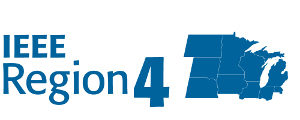As global tensions intensify; how do we keep the lights on when everyone with an internet connection has access to the switch? Whenever you flip on a light switch, you are calling upon the most complex and dynamic machine ever built, to deliver you just the right amount of electricity to power your home. Meanwhile, hundreds of millions of other people and businesses across North America call upon that same machine for the same service. When you think about it this way, it is quite remarkable that you can depend on consistent reliable access to electricity. This doesn’t happen by accident. How does it all work so well (most of the time)? Who is responsible for that machine? Who is protecting it? We will take a short journey describing the North American electric machine, how it works, how it is split up, how it can be broken, and how we are protecting it. We will attempt to avoid technical electric jargon and regulatory politics as much as possible. Speaker(s): Wally Magda Room: 115, Bldg: Avery Hall, 1144 T St, University of Nebraska - Lincoln, Lincoln, Nebraska, United States, 68588, Virtual: https://events.vtools.ieee.org/m/444219

